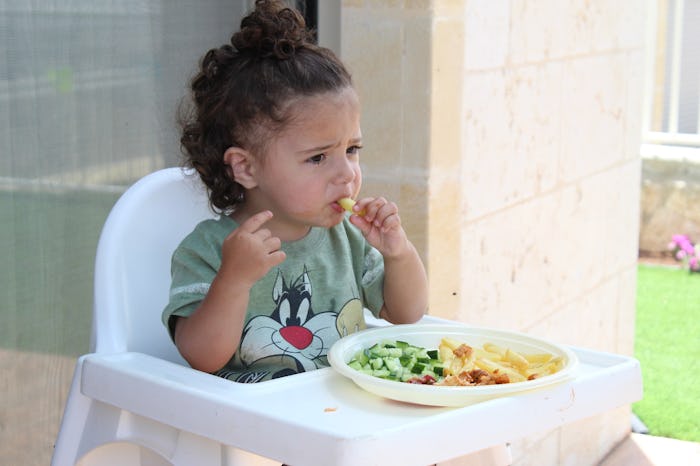News
There's A Salmonella Outbreak In 12 States, & Here's What Parents Need To Know
Summertime means plenty of delicious outdoor gatherings with friends, and someone's going to bring a fruit salad. But before you reach for some of your favorite tropical fruits in the produce aisle, there's a salmonella outbreak in 12 states — and here's what parents need to know. According to the Centers for Disease Control and Prevention, the salmonella outbreak was caused by papayas, specifically yellow Maradol papayas, a cultivar known for its large size and red flesh typically grown in Mexico, Central America, and Belize.
The papaya salmonella outbreak has infected 47 people, causing 12 to be hospitalized and at least one death reported in New York City. The states with the highest number of reported cases are New Jersey and New York, but people have also been sickened as far west as Utah and as far south as Texas. Iowa, Kentucky, Louisiana, Maryland, Massachusetts, Pennsylvania, and Virginia are the remaining states that have also reported cases of infections related to the salmonella outbreak across the United States.
Infected patients have ranged in age from as young as under the age of 1 to as old as 95; of all the people associated with this particular salmonella outbreak, 67 percent were female.
According to the American Academy of Pediatrics, salmonella infections in kids are most likely to happen before the age of 4. Symptoms of salmonella infection in children are much the same as they are for adults, including vomiting, diarrhea, fever, muscle aches, and chills. Symptoms typically start anywhere from 12 to 72 hours following infection, and the illness can last up to seven days in children. The biggest issue that parents need to be on the lookout for is severe dehydration in kids with salmonella.
While salmonella is most commonly associated with eggs and chicken, it's entirely possible for the bacteria to cause outbreaks via fruits, vegetables, and even contaminated water, as this deadly outbreak across 12 states has shown. How parents can prevent salmonella in their homes is as simple as making sure everyone in the house regularly washes their hands, especially before eating. Fresh fruit should be thoroughly washed before preparation, as should any utensils and work surfaces.
Even so, with such a widespread and deadly salmonella outbreak, the CDC has warned anyone in the country thinking about snacking on papaya at the moment to "not eat, restaurants not serve, and retailers not sell Maradol papayas until we learn more." Parents might want to move onto mangoes for a tropical fruit snack for the kiddos for now.
